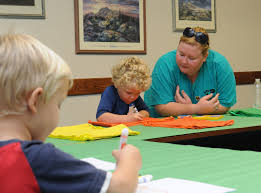Creative writing is one of the most challenging and rewarding aspects of learning.
It is not just important because it is a part of the curriculum but because research shows that children who are good at creative writing are better achievers all round. Those pupils who have mastered it tend to do well at other subjects, such as geography, history, sociology, science and languages to name a few. They are also more likely to be more persuasive than their peers, more organised and better problem solvers. It stands to reason that these are skills that will stand them in good stead their whole life.
At Elisa’s Tutorial School we know and value the importance of learning creative writing. Our writing workshops are one of our most popular extra-curricular courses, and children leave it forevermore confident when faced with what used to be the daunting terror of a blank page due to the good planning we teach through mind-mapping and story planning diagrams.
Typically this is what a session might look like:
A group of 10 or so students troop in on Saturday afternoon and split into two groups. They range in age from Alice, who is 8 years old, to the reluctant reader Jacob who is 11 and to Aggie who is the oldest at 16. (*All names and details changed)
They all sit down, in their two groups, younger and older, and take out their creative writing folders that are filled with notes, completed works and excerpts from popular children’s books.
Each of them are at different stages in their writing journeys.
Alice is learning English, as she is from Romania. However, she is a strong student, whose parents have instilled in her a love of reading from a young age. Alice is learning to read fun children’s books like The Famous Five by Enid Blyton. While her grammar and spelling need to improve, it is clear that the planning and organisation guidelines are helping to mould her strong imagination.
Jacob is dyslexic and has hardly ever read anything more challenging than a Tintin comic (in which he mostly looked at the pictures). He is now learning to enjoy exciting stories such as Harry Potter and the Narnia series. Jacob is learning new words with which to paint the perfect picture. Using the worksheets given to him to practise new vocabulary, Jacob is slowly gathering the tools to become an enthusiastic reader and confident writer.
Aggie would like to ace her GCSE English paper. She is learning about the various genres of writing, both fictional and non-fictional. Dissecting the styles of individual writers is a big part of her studies. Aggie will soon be able to write not only with her own strong and distinct voice, but also in the tone and style of others. This is true mastery over the craft of writing.
All of these unique individuals work together with the other students for a short while, and then work independently on their own personal writing projects.
If you would like your child to benefit from a creative writing course then please contact me here. I’d be delighted to discuss the details of the workshops with you. You can also read more on my website too!
